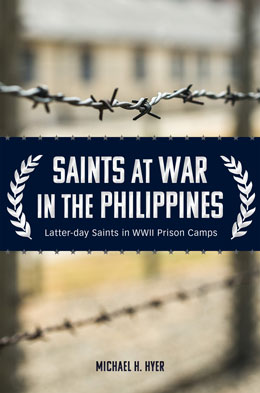Preface
In 2011 BYU Studies published an article by David L. Clark and Bart J. Kowallis entitled “The Fate of the Davao Penal Colony #502 ‘Branch’ of the LDS Church, 1944.”[1] It included several references to my uncle First Lieutenant George Robin (Bobby) Brown. I had not known this uncle but had a vague understanding that he had died in World War II. The article also discussed Brown’s involvement in a branch of The Church of Jesus Christ of Latter-day Saints that prisoners of war (POWs) had organized in a Japanese POW camp. When I mentioned the article to my wife, Evie, she suggested a couple of nonfiction books about Allied POWs in the Philippines—Escape from Davao, by John D. Lukacs, and Ghost Soldiers, by Hampton Sides—that she had recently read. The BYU Studies article referenced many of the same places and events described in those books.
With that observation, I undertook to track this uncle’s experiences as a soldier and POW by overlaying the few basic facts known from his military records, as well as bits and pieces of information recorded in family histories, over more detailed published accounts of the war. This effort introduced me to the many well-researched books, articles, and websites dedicated to preserving the memories and remarkable stories about World War II POWs in the Philippines, including first-person accounts by former POWs who had been imprisoned in the same camps as my uncle.
This study then led to another, most rewarding discovery. By combining information from these sources with information from the FamilySearch website, I was able to identify other POWs who were members of the Church and had been imprisoned with my uncle. Many of these other Latter-day Saint POWs had left accounts of their experiences in letters, interviews, talks, and personal histories, all of which had been carefully preserved by their families.[2] Their inspiring stories were largely unknown, however, other than to a few family members. I was able to obtain access to many of those accounts.
Theirs are stories of resilience in the face of adversity, of unwavering faith at times when God may have seemed indifferent and his presence far away, and of goodness and virtue in a world filled with hate and malice. Their stories are the core of this book.
Michael H. Hyer
Notes
[1] David L. Clark and Bart J. Kowallis, “The Fate of the Davao Penal Colony #502 ‘Branch’ of the LDS Church, 1944,” BYU Studies 50, no. 4 (2011): 109–35.
[2] Admittedly, contemporary first-person accounts from a POW camp are scare. Furthermore, reminiscent accounts omit the experiences of those who did not survive.
